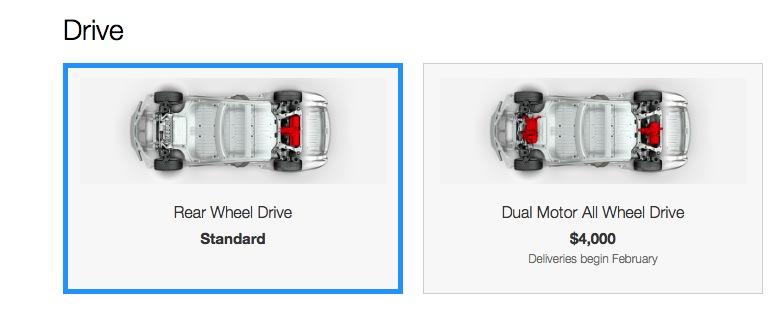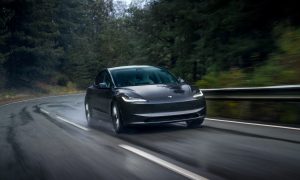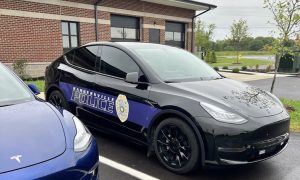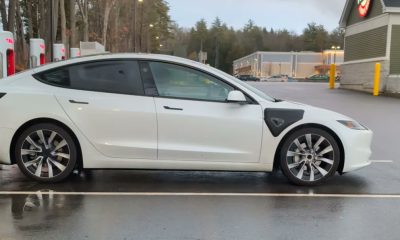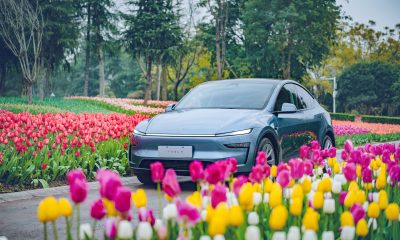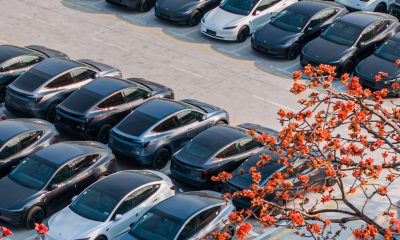News
Musk Confirms Model 3 will be RWD with Dual Motor Optional
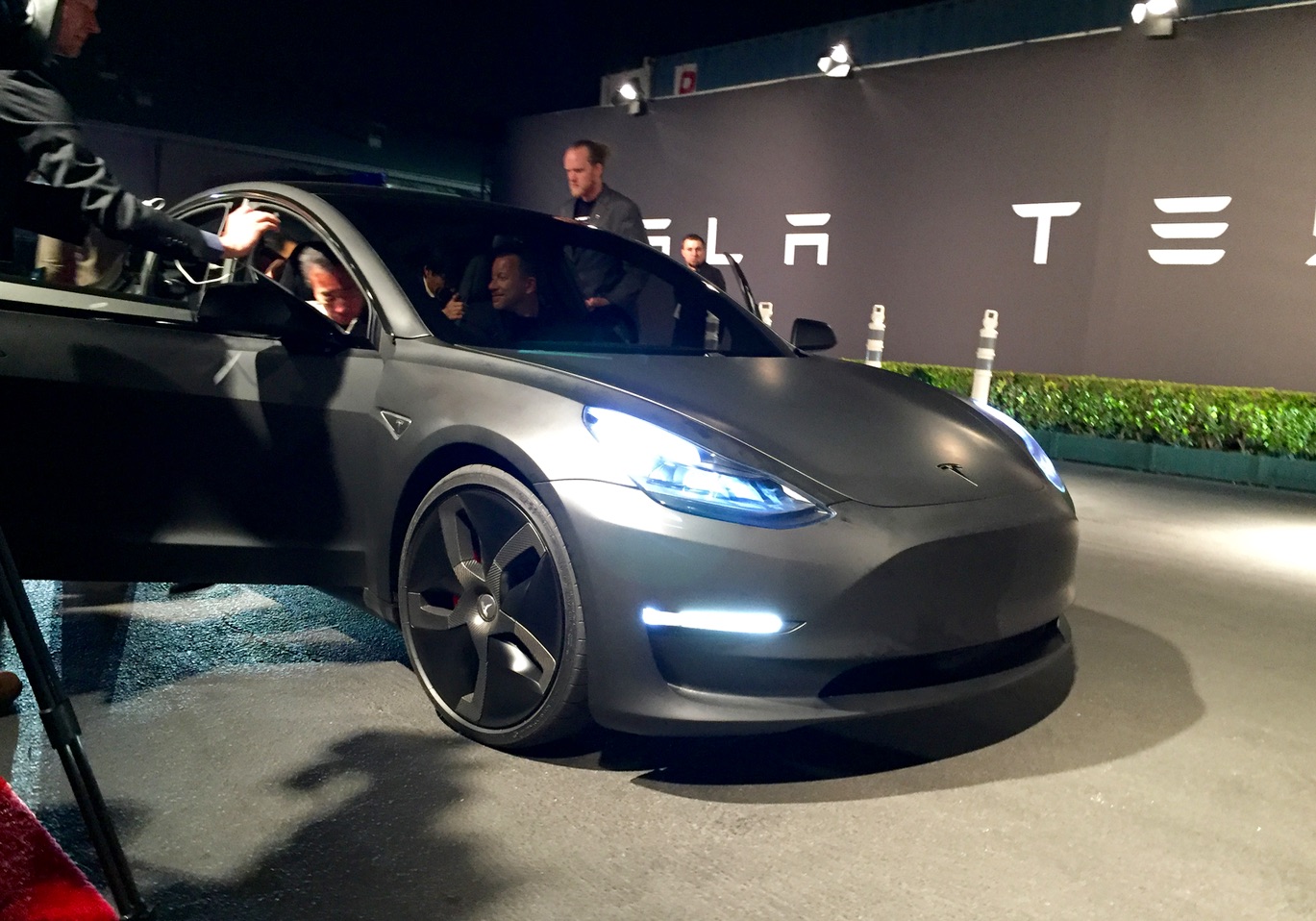
Tesla Model 3 will have rear wheel drive (RWD) as standard feature with the option to upgrade to a dual motor all wheel drive configuration.
In a surprise flurry of Twitter replies late Sunday afternoon, Musk revealed additional details about the drivetrain for the upcoming Model 3. The $35,000 base version of the vehicle will have a standard RWD configuration while those that seek additional performance and an improvement in range will be given the option to upgrade to Tesla’s dual motor all wheel drive set up: standard feature found on the Model S and Model X.
Model 3 will be RWD, with dual motor AWD optional. Even RWD will have great traction on ice due to fast torque response of Tesla drivetrain.
— Elon Musk (@elonmusk) April 3, 2016
Tesla’s all wheel drive configuration was first announced back in 2014 when Musk revealed the “D” option for the Model S. The two-motor layout would provide increased efficiency despite the increased weight from the additional front-mounted motor, by allowing each motor to run independently of one another in its most energy efficient torque and RPM state. According to Musk from the D event, “Because we have two drive units, where we can shift the power from front to rear, and constantly be at the optimal efficiency point for each motor … we’re actually able to overcome the penalty of the increased mass of the motor.”
Having RWD as a standard feature on the Tesla Model 3 make sense both from a production efficiency standpoint as well as one from the consumer side. By eliminating the need to assemble an additional front-mounted motor, Tesla is able to simplify the amount of wiring and components needed for the production of each Model 3. This is undoubtedly something Musk will be thinking about especially given the huge success of the Model 3 based on the large number of reservations made worldwide in just the first two days. In order to meet the higher than anticipated demand for the Model 3, Musk took to Twitter to announce, “Definitely need to rethink production planning …”

Despite the touted performance and range improvements from a dual motor configuration, the question remains whether first-time Model 3 buyers – many of which have waited years for the chance to purchase an affordable Tesla at $35,000 – will remain price conscious and stick to the standard rear wheel drive offering, or make a financial stretch and upgrade to an all wheel drive version of the Model 3.
Check out our ride in an all wheel drive dual motor Tesla Model 3 from the unveiling event.
Hat tip: Josh Robinett
News
Trump’s auto tariffs spark concerns in Japan

Japan expressed concern over President Trump’s auto tariffs, citing inconsistencies with a 2019 bilateral trade deal signed with the U.S.
Prime Minister Shigeru Ishiba said Japan is committed to the 2019 agreement despite current concerns over President Trump’s new tariffs.
Trump’s tariffs impose a 25% duty on imported vehicles, effective April 3, 2025, and auto parts duties will be imposed in May. The 2019 U.S.-Japan trade deal, signed during Trump’s first term, reduced tariffs on U.S. farm goods and Japanese machine tools.
Then-Prime Minister Shinzo Abe secured assurances from Trump, stating, “Between President Trump and I, this has been firmly confirmed that no further, additional tariffs will imposed.”
The 2019 bilateral trade deal did not cover auto trade between the United States and Japan. However, at the time, Prime Minister Abe had received assurances from President Trump that the U.S. would not impose national security tariffs on Japanese car imports. As such, the deal avoided higher U.S. car duties.
According to Reuters, Japan faces Trump’s 24% tariff on its exports to the United States, which were paused until July. Trump’s 25% auto tariff and a 10% universal rate remain intact, impacting Japan’s car-heavy economy.
Ishiba addressed the issue in parliament, noting, “Japan has grave concern over the consistency” between the tariffs and the 2019 bilateral deal. “We will continue to convey our stance (to the U.S.) from this standpoint,” he added, clarifying that Japan has no plans to terminate the agreement. The deal excluded automobile trade and remains a cornerstone of bilateral relations.
Japan’s trade negotiator, Ryosei Akazawa, visited Washington last week to discuss trade issues, including non-tariff barriers and exchange rates. Finance Minister Katsunobu Kato is set to meet U.S. Treasury Secretary Scott Bessent this week to address currency concerns, signaling Japan’s proactive diplomacy.
Japan’s firm stance reflects its intent to protect its auto sector while navigating U.S. trade policies. As talks continue, the outcome could shape bilateral trade dynamics and influence Japan’s export strategy amid ongoing tariff uncertainties.
News
Elon Musk dubs lawsuit alleging false Tesla odometer readings “idiotic”
The lawsuit alleged that Tesla’s odometer readings use “predictive algorithms” instead of actual mileage driven.

Elon Musk has responded sharply to a lawsuit alleging that Tesla speeds up its vehicles’ odometers to avoid paying for warranty-covered repairs.
Musk’s comment about the lawsuit’s allegations were posted on social media platform X.
The Lawsuit’s Allegations
The proposed class-action lawsuit claimed that Tesla is speeding up its vehicles’ odometers so that they can fall out of warranty quicker. This system, the lawsuit alleged, allows Tesla to save a significant amount of money in repairs.
The lawsuit’s plaintiff is Los Angeles resident Nyree Hinton, who alleged that his 2020 Tesla Model Y’s odometer readings reflect energy consumption, driver behavior and “predictive algorithms” instead of actual mileage driven, as noted in a Reuters report.
Hinton claimed that based on other vehicles and driving history, his car was stating that he was driving 72 miles a day when he usually drove just 20 miles at most. Because of this, Hinton alleged that his basic warranty expired well ahead of schedule, resulting in him paying $10,000 for a suspension repair that he believes should have been covered by warranty.
“By tying warranty limits and lease mileage caps to inflated ‘odometer’ readings, Tesla increases repair revenue, reduces warranty obligations, and compels consumers to purchase extended warranties prematurely,” the lawsuit noted.
Elon Musk’s Response
Tesla and its legal team have fully denied all material allegations that were outlined in the proposed class-action lawsuit. In a comment to longtime FSD user @WholeMarsBlog on X, Tesla CEO Elon Musk also criticized the proposed class-action lawsuit. “This is idiotic,” the CEO wrote in a post on X.
Veteran EV owners have also stated on social media that the lawsuit’s claims were inaccurate since Tesla’s odometers do not, in any way, use predictive algorithms. Others also pointed out that repairs are not a major source of profit for Teslas because the company’s vehicles tend to last long without requiring maintenance or spare parts.
News
Bizarre Tesla Cybertruck attacker in South Korea arrested and detained
The man is also accused of assaulting several people and damaging other vehicles during the incident.
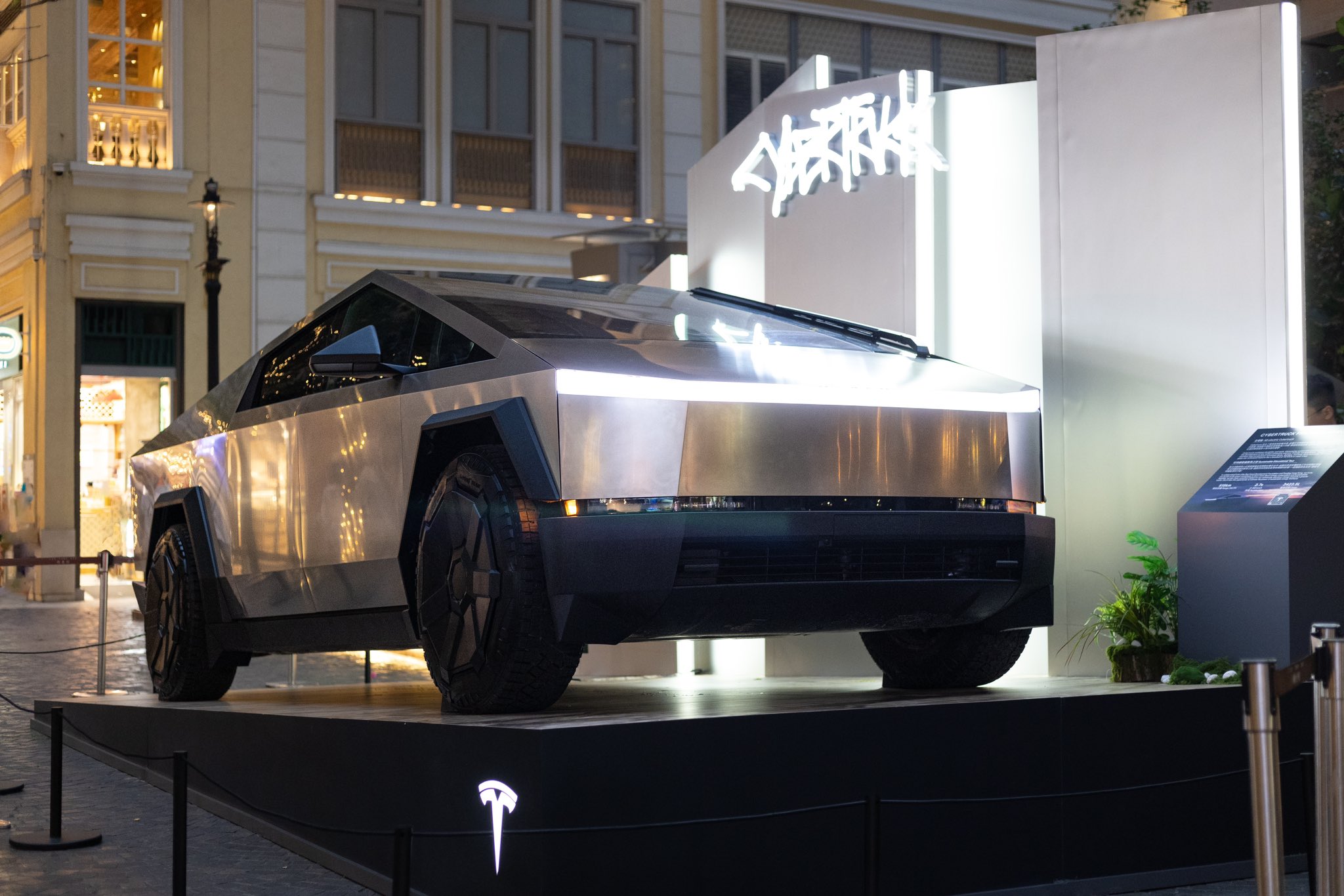
A man who attacked a Tesla Cybertruck in South Korea’s Gangnam district has been arrested and detained.
As per reports, the man is also accused of assaulting a person and damaging several other vehicles during the incident.
The Incident
As per authorities, the suspect, who is in his 30s and is dubbed “Mr. A” (suspect names are typically not disclosed in South Korea to protect privacy and prevent possible prejudice), allegedly assaulted a hotel employee on the morning of April 15.
Following the assault on the hotel employee, the suspect reportedly knocked over a delivery motorcycle. He then went over and kicked a Tesla Cybertruck that was owned by a nearby medical facility. One of the all-electric truck’s side mirrors was damaged due to the attack.
As per a News 1 Korea report, Mr. A has also been accused of kicking four BMW vehicles at a nearby auto shop. The BMWs’ passenger side doors were damaged by the suspect.
Charges and Arrest
As per the Seoul Gangnam Police Station in an announcement, an investigation into the incident is underway. The suspect was arrested on charges of special assault, property damage, and obstruction of business.
Authorities apprehended Mr. A in Seongnam, Gyeonggi Province, on April 18. An arrest warrant from the court was released the day after.
Cybertruck Attacks
The Tesla Cybertruck attack in South Korea is quite bizarre as the suspect assaulted both people and vehicles. The incident, if any, seems to be quite different from the attacks on Teslas that have been reported in the United States and Europe, which seemed to be political in nature and a response to CEO Elon Musk’s close relationship with President Donald Trump.
-
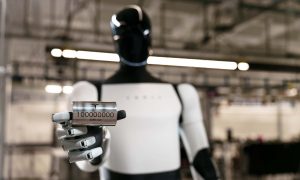
 News2 weeks ago
News2 weeks agoTesla celebrates key milestone for 4680 battery cell production cost
-
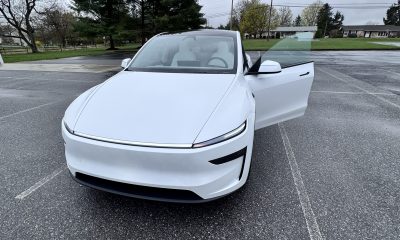
 News2 weeks ago
News2 weeks agoI took a Tesla new Model Y Demo Drive – Here’s what I learned
-
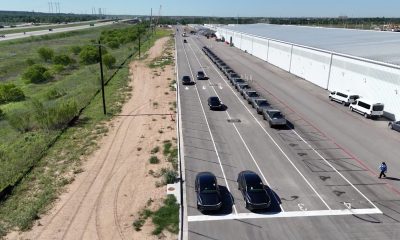
 News2 weeks ago
News2 weeks agoTesla’s Giga Texas vehicles now drive themselves to outbound lot
-
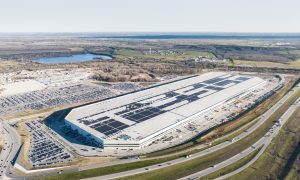
 News2 weeks ago
News2 weeks agoTesla’s ecological paradise near Giga Texas takes shape
-
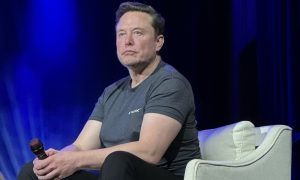
 News2 weeks ago
News2 weeks agoElon Musk and top Trump trade advisor Peter Navarro lock horns over tariffs
-

 News2 weeks ago
News2 weeks agoTesla bull lowers price target citing ‘brand crisis’
-
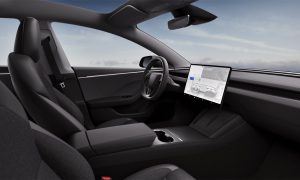
 News2 weeks ago
News2 weeks agoTesla adding new safety features for improved emergency detection
-
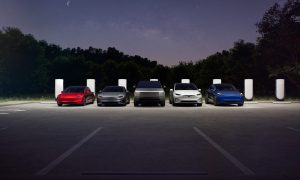
 News2 weeks ago
News2 weeks agoTesla rolls out latest Safety Score update—Here’s what’s new

